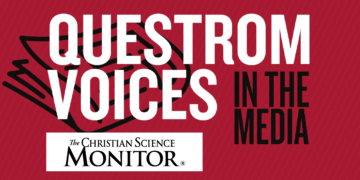September 2, 2025
The Jakarta Post recently published an article by Sami Karaca, Clinical Assistant Professor of Markets, Public Policy, and Law, analyzing the Trump administration’s decision to take a 10% stake in Intel – a move that signals a shift in U.S. capitalism toward a hybrid model blending free-market principles with state-directed strategy.
Historically rooted in laissez-faire economics, the U.S. is now testing direct ownership in strategically vital industries such as semiconductors and rare earths. This approach expands on the CHIPS and Science Act, moving beyond grants and tax credits toward equity stakes – with Washington seeking not only security but also financial returns.
As Karaca notes, “The U.S. isn’t rejecting capitalism but recalibrating its boundaries. The next few years will show exactly how Washington’s interventions will reshape U.S. capitalism.”
Supporters argue such steps could reinforce supply chains and sharpen competitiveness against China, while critics caution that taxpayer-backed investments risk misallocation if they flow into the wrong sectors. The question now is whether this recalibration will remain limited to semiconductors – or extend to energy, biotech, and beyond.




















